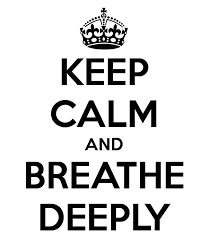I am an interfaith minister who was raised Jewish and was taught that God watches over us orchestrating outcomes and is a Source and Force to whom we pray, hoping for a particular outcome. I learned about Christianity from friends who grew up in that faith, read the New Testament in high school, questioned who the historical Jesus was and was introduced to the spiritual teacher he became. The Trinity made no sense to me in my youth as I wondered how God could be three in one. It was when I immersed myself in my studies in preparation for ordination, following the lengthy illness and ultimate death of my husband, that I had a greater sense of the scope of my own spiritual path, which included the understanding of the multitudinous ways the Divine can be viewed.
I was eager to watch the newly released movie The Shack that was based on the book by the same name, written by William Paul Young. I knew the storyline and was prepared for witnessing the anguish of a family whose beloved child was murdered. As a therapist who has worked with those who have experienced trauma and loss, I know the turmoil, guilt, blame, anger and second-guessing that goes on. I also am abundantly aware that parents desperately attempt to understand how a God of love could allow that to occur. They carry an immense amount of pain that I can only imagine. Relinquishing it, even if they wanted to, may seem like asking too much.
The main character Mack, played with genuine emotion by Sam Worthington whose Avatar role brought him to my attention, is a man whose relationship with God is fractured as a result of his own childhood abuse and an action he feels compelled to take to protect his mother and himself from the alcohol-fueled rage of his father. A foreshadowing of the appearance of God occurs in his childhood, but he has repressed that interaction. He has buried the pain in his heart even as he marries and has three children of his own who he adores. One thing I was pleased to see was that he broke the abuse cycle, as evidenced by his interactions with his family.
Although he spends time in church, it is his wife played by Radha Mitchell, who is the spiritual anchor for him. He is kind of along for the ride. God seems to ring hollow to Mack. He befriends a fellow church-goer played by Tim McGraw who is the narrator for the movie. Octavia Spencer and Graham Green are the feminine and masculine incarnations of God, (called by the familiar name Papa), Jesus is portrayed by Israeli actor Avraham Aviv Alush and looks like I imagine the historical Jesus would have appeared, with dark curly hair and beard, speaking with a middle Eastern accent. The Holy Spirit — called “Sarayu” in the film — is portrayed by Asian actress Sumire Matsubara. Each of these embodiments of the Divine was represented in forms which I can see the God of my understanding appearing and sounding. Although the imagery was Christian, the message felt universal. The takeaway was about love and forgiveness, about relinquishing anger and bitterness and refraining from judgment.
I particularly appreciated the line about Jesus not wanting slaves, but rather friends and family. This is a God without the hellfire and brimstone that so many espouse and instead, a Creator and Sustainer of compassion and reconciliation. Little wonder why many fundamentalists have difficulty with the expression of spirituality in this movie. These manifestations of the divine are about love and not fear. Some protest that it is not scripturally accurate. It wasn’t meant to be. It is a work of fiction and expressed the faith of the author and the arduous Hero’s Journey that the main character takes. It invites us to see Spirit in all forms. If we were made in the ‘image and likeness of God,’ why wouldn’t the Divine take the form of an African American woman, Native American man, Middle Eastern man and Asian woman? How limiting is to believe that such portrayals are blasphemy?
Mack and his middle child struggle with their respective guilt for the disappearance and brutal murder of Missy and at the end of the film, his admission that he was so mired in his own suffering that he wasn’t able to acknowledge hers, transforms their estrangement into closeness once again.
What touched me deeply (without giving too much away) was the idea that we imprison ourselves with our judgments and swamp our own symbolic rowboats with our fears and an inability to relinquish the past. I consider how I judge those whose behaviors harm others. In the eyes of God, according to the film/book, they are no less worthy of love. I may justify my anger and desire for retribution, but it keeps me from fully embracing life.
Some of my favorite quotes:
Papa: “Just because I work incredible good out of unspeakable tragedies doesn’t mean I orchestrate the tragedies. Don’t ever assume that my using something means I caused it or that I need it to accomplish my purposes. That will only lead you to false notions about me. Grace doesn’t depend on suffering to exist, but where there is suffering you will find grace in many facets and colors.”
Jesus: “Remember, the people who know me are the ones who are free to live and love without any agenda.”
Mack: Is that what it means to be a Christian?”
Jesus: Who said anything about being a Christian? I’m not a Christian.”
Mack: “No, I suppose you aren’t.”
When we can accept that God is “especially fond of us,” no matter how many times we, in our human frailty, stumble and fall, it is then that we are healed.


